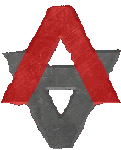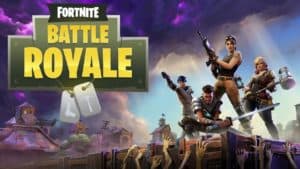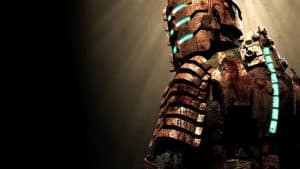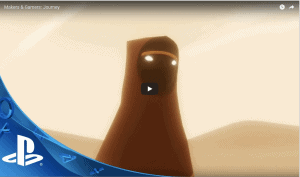Following the launch of Rogue Legacy, Analog Addiction was given the chance to ask Teddy Lee, the Co-Founder of Cellar Door Games some questions about the development of Rogue Legacy, what it’s like being an Independent developer and why the PC was the system of choice for Cellar Door Games.
AA: Firstly, congratulations on creating an awesome game in Rogue Legacy. What made you decide to make the switch from iOS and free flash based games, to a paid PC based model?
Lee: iOS isn’t an easy platform to succeed on. When we were trying to make games on it, I think the average number of games that were being submitted per day was like 300 or something. The competition on it is crazy, and if you want to be really successful, you have to go freemium. There’s nothing wrong with it. [League of Legends] does a great job with its freemium model, but it’s not what we want to do. So that’s why we switched to Flash. We jumped from Flash to paid PC because it just felt like the time was right to try something bigger.
AA: Many gamers purchase their games through Steam- that’s how we found Rogue Legacy. How easy is it to get your product on Steam so it is visible by many consumers? Why choose PC to distribute Rogue Legacy when you designed it with gamepad based control in mind?
Lee: We made the game for PC because it’s the most accessible platform. As well, Steam Greenlight gives us the chance of distributing without having to go tackle the expensive costs of going to GDC, PAX, etc to try and pitch our game to major publishers. PC is also our preferred platform, because even though I love consoles, I rarely play them. It’s just too big of a hassle to turn it on and prep time for it. My PC on the other hand is always on, so you don’t have to really plan ahead for it. We specifically wanted to make a game which – if you had 5 minutes to spare – you could play, and still get a complete experience.
As for ease of visibility? Getting visibility for anything is never easy.
AA: Rogue Legacy is a very hard game. Why did you decide to create a game like this rather than a more usual 2D platformer? Who is the best at the game in your studio, and does anyone have a speed run time skilled gamers should be aiming for?
Lee: We made Rogue Legacy because we like to make different game styles. Our original goal was a slightly more accessible 2D rogue like, and we just stuck to it. That’s just how the game came out. Aside from major goals, we didn’t have everything penned out from day 1.
I’m probably the best player at the game, but there’s way better people than me already on the Internet. I’ve never actually tried to speed run the game, because every time I played, I’m doing it very mechanically. Play the game, try to exploit, tweak numbers, etc. So I’ve never really tried to all out it. But my fastest run I believe was a little under 4 hours. The average player takes like 15-20 hours to beat the game.
AA: Your game, Band of Bears, says it needs more funding to get on Xbox 360. Is this because of Microsoft’s known fees regarding getting games published on the system? Have you considered using crowd funding methods?
Lee: Band of Bears needs more funding because we rushed out a vertical slice of the game. To proceed from that we’d probably have to remake the game from scratch. It was a very rough demo, but it had a lot of systems underneath which made it a very cool game. But as it stands, the game’s more or less shelved indefinitely.
We’re not sure if we’d do crowd-funding. We don’t like making promises unless we can keep them, and that usually means we have the game 90% complete before we show it to anyone which would make crowd-funding pointless for us.
AA: Based off of the hidden easter eggs in Rogue Legacy, I saw development time on your games varied; How long did it take to create Rogue Legacy, and how many people worked on the game?
Lee: Rogue Legacy took a little less then 1.5 years to make.
My brother Kenny worked on it full time for the entire project. Programming, production, etc.
I worked on it part time, for the first 12 months, and then came on full time for the last 5.
Glauber Kotaki was our contract artist who joined on 4 months into production.
Gordon McGladdery and Judson Cowan were our two musicians, and they joined about 8 months into production.
AA: With the impending release of next-gen consoles, are you hoping to be able to develop for them? Being a smaller studio, are there any limitations that would prevent you from doing so?
Lee: We’d like to be on next gen consoles just because that’d be cool. But we probably won’t expand much. We like making small games, so we’re probably gonna keep making small games.
AA: Being an independent developer, how important is it for media outlets (like Analog Addiction) to cover your game and make it known? Would you say the numerous amount of YouTube gamers help greatly to spread word around about your games?
Lee: We tackled marketing a little differently. Our first shot was Reddit, we really hoped people would notice us if we released our trailer there, and we were really lucky that it was able to pick up steam. Huge kudos goes to my brother Benny who made the trailer for us there.
After that, the YT (YouTube) community came in and drove the vast majority of our coverage for us. We made a press demo, and gave it to a bunch of LPers (Let’s Players) like NorthernLon, RockLeeSmiles, etc, and they really helped us with getting Greenlit. And through their word of mouth, they helped us get in contact with the more mainstream media such as Polygon, Destructoid, Giantbomb, etc.
AA: Now that Rogue Legacy has been released, do you have any plans for your next project? Would you care to spill some beans on any ideas?
Lee: We have a few ideas, but nothing concrete. And any ideas we have will probably be scrapped once we actually start working on the next project.
AA: Thank you very much for taking the time to let our viewers get an inside into being an independent developer. Before you go, a personal question; Microsoft, Sony, Nintendo, or PC, and why?
Lee: PC, because it’s quick to start up, and I have no patience. But that might change with the next generation of consoles and the promise of no load times.



